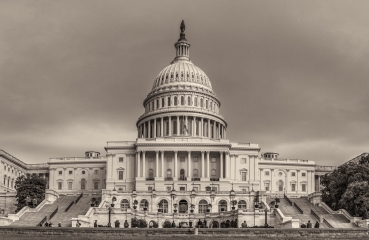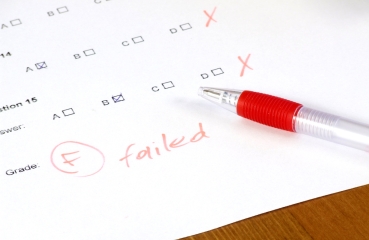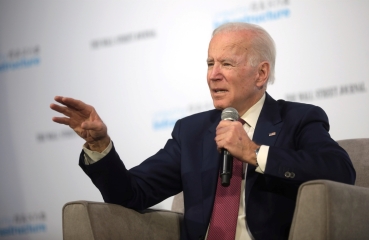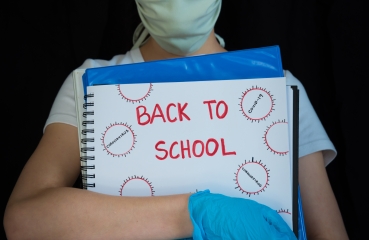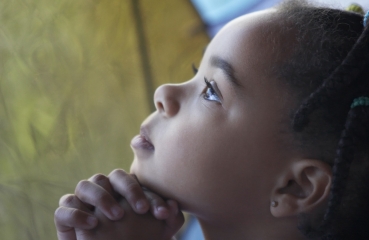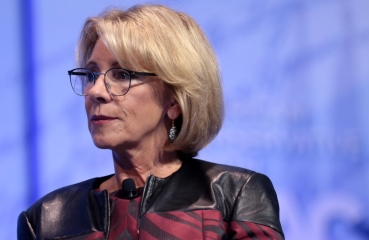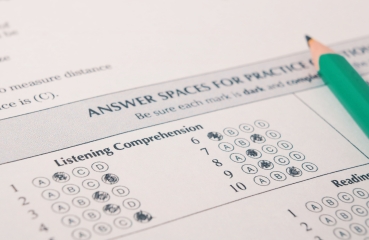Why reading growth flatlines, and what to do about it
Gene KernsDiscussions about the power of literacy are ceaseless.
How gerrymandering can hurt education
Trinady Maddock2020 brings the decennial national census, and with that comes a whole host of challenges and changes brought on by the redistricting that follows—or as it’s sometimes known in its more questionable forms, gerrymandering.
The cancellers come for charter schools
Robert PondiscioAlmost exactly twenty years ago, in August 2000, CBS News’s 60 Minutes aired a segment about a pair of charter schools—one in the South Bronx; another in Houston, Texas—founded by a duo of twenty-something White male teachers. To see it now is to catch a time capsule glimpse of a more earnest and hopeful time.
School districts could try harder to reopen
Dale ChuAs coronavirus cases continue to rise, Colorado’s two largest school districts, Denver and Jeffco, recently announced their intention to start the school year remotely.
With its next stimulus bill, Congress should return federal education aid to its roots
Michael J. PetrilliSenate Republicans released their relief bill this week, the HEALS act, which proposes to steer the bulk of education aid to schools that open for in-person instruction. This is triggering angry reactions from most of the education establishment. Here's a less controversial and more constructive suggestion: Return federal education policy to its roots and require schools to provide “targeted assistance” to their disadvantaged, low-achieving students.
The “gifted gap” was already growing before the pandemic
Chris YalumaThe Covid-19 pandemic has further exposed the inequities that have long existed in K–12 education system.
Tutoring as an effective strategy in our troubled times
Robert Slavin, David SteinerAs state and district leaders face the challenges posed by Covid-19, safely reopening schools within the current budgets is first, second, and third on their priority list.
Will NAEP wreck its reading assessment?
Chester E. Finn, Jr.The National Assessment Governing Board is in the middle of an enormous effort to revamp its framework for assessing reading, a central element of the National Assessment of Educational Progress. Frameworks set forth what is to be assessed and how that’s to be done. Changing them is harder than moving a cemetery, requiring years of lead time, costing much money, and entailing endless palaver among people with divergent views of the subject. Unfortunately, in the proposed set of revisions, the bad outweighs the good by a considerable margin
The Education Gadfly Show: NAEP’s flawed reading revamp
On this week’s podcast, Checker Finn and David Griffith discuss the flawed effort to revamp NAEP’s reading framework.
Biden’s education plan should be more student-centric
Tressa PankovitsGiven its makeup, it’s no surprise that the task force report trots out the oft-refuted canard that charter schools “undermine” traditional schools. The National Education Association (NEA) used identical language in a 2017 policy statement pledging “forceful support” for limiting charter schools. “The growth of charters has undermined local public schools and communities, without producing any overall increase in student learning and growth,” the NEA claimed.
The Education Gadfly Show: What the coronavirus resurgence means for reopening schools
On this week’s podcast, Mike Petrilli and David Griffith discuss whether and how schools should reopen in the fall.
Dueling Florida standards reviews
Amber M. Northern, Ph.D.Last month, Fordham released a detailed review of Florida’s latest K–12 academic standards for English language arts (ELA) and mathematics.
Pity the history teachers
Michael J. PetrilliAs the start of the school year rushes toward us, teachers across America are girding themselves for their new role as “essential workers” during a persistent pandemic. But one group of teachers has it particularly rough: U.S. history instructors, who must also perform their duties during a full-scale culture war over how to tell the American story, especially on the central issue of race. As tempting as it may be, they shouldn’t sidestep controversies or smooth the edges with bland, antiseptic readings. This would lead only to bored, disengaged students, and contribute to our woeful knowledge of our nation’s history.
Is it finally, at long last, time for religious charter schools?
Chester E. Finn, Jr.Seventeen long years ago, I urged the creation of “religious charter schools,” either encouraging their start from scratch or—more realistically—allowing extant Catholic and other faith-based schools to convert to charter status
What are we going to do about school?
Jonathan V. LastEditor’s note: This post was first sent as an email in The Bulwark’s newsletter “The Triad: Three things to read, from JVL.” 1. School?
Why grades matter
Chester E. Finn, Jr.Pass-fail ratings in schools are widespread this pandemic-stricken spring. But when “passing” denotes anything that’s not “failing,” what signifies excellence? What distinguishes a first-rate research paper or book review or math proof from one that’s barely serviceable? Where’s the recognition for a student whose class participation is well-prepared, attentive, thoughtful and articulate versus the pupil who yawns, smirks, whispers, peeks at his phone and responds to direct questions with surly, one-word answers? Grades surround us and we depend on them in one realm of our lives after another.
Why Secretary DeVos should reject Michigan’s testing waiver request
Dale ChuToday, Michigan became the first state to formally seek federal permission to suspend standardized testing in 2021 because of learning disruptions caused by the coronavirus.
Anti-bullying laws work for female students
Tran LeIn the past twenty years, every state and the District of Columbia has passed state-level anti-bullying laws (ABLs), requiring school districts to develop policies that define bullying, encourage students to report victimization, and punish offenders.
The Education Gadfly Show: How assessment data can drive instruction this fall
On this week’s podcast, Mike Petrilli, Tran Le, Amber Northern, and David Griffith discuss Fordham’s new





